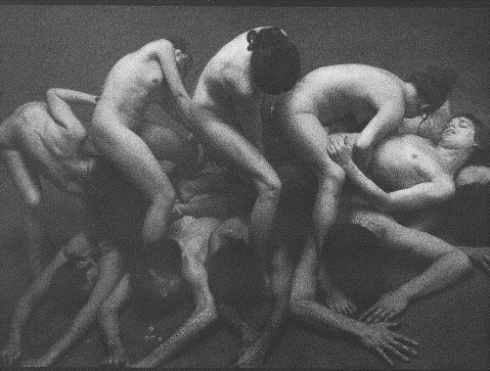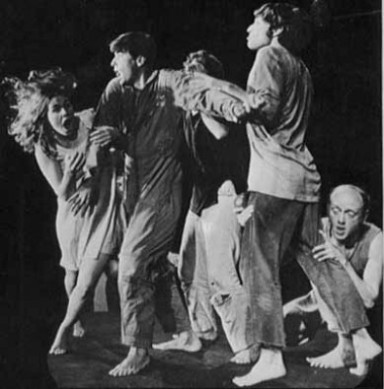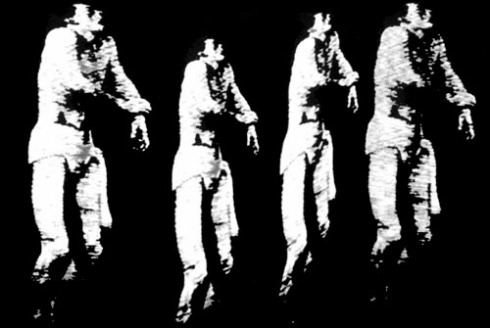And, Gary, come come, on the kickdrum, come come
John Michael Higgins–The Breakup
(http://www.youtube.com/watch?v=4qjeetfpqKM)
Enactment and Ritual
According to Wilhelm, one of the benefits of utilizing enactment strategies is that doing so will allow you to “Harness the social power of the nature of learning” (11). “Enactments,” he writes, allow teachers to “‘socialize’ meaning fully with students—engaging, confronting, and challenging them, so they will outgrow their current selves and learn new strategies, stances, conceptual knowledge, and ways of being” (10).
- He posits enactment to be both action-oriented and participatory.
- Enactment requires students to work together, express their opinions, listen to each other, and create meaning together
- Enactment requires active involvement by all parties.
- Enactment provides a wide variety of roles and ways to participate.
- Enactment begins with and s driven by student interests, by what they already know and find significant, and what is socially (my italics) relevant.
- Enactment can develop new interests in students.
This strategy was very important to theatre theorists in the 1950s-1970s. Arnold Aaronson in his seminal book American Avant-garde Theatre: A History identifies an “international triumvirate of innovative theatre artists” consisting of Joseph Chaikin (of Open Theatre fame), Jerzy Grotowski, and Peter Brook (85) as utilizing ritual forms. Grotowski would pursue his own Theatre of Sources. Peter Brook and Andrei Serban each proposed their own Theatre of Roots.
Aaronson describes “The most notorious and far-reaching of these efforts” as the Performance Group’s Dionysus in 69, a ritual performance of Euripides’ The Bacchae directed by Richard Schechner. Robert Pasoli notes, in The Village Voice review of the Open Theatre’s The Serpent, “a ceremony is a way of expressing things held true by all those present, but not accessible through discourse or rational disclosure” (92).
Dionysus in 69
Open Theatre Serpent
Grotowski
In the “The 1960s: Collectives and Rituals” chapter of his book American Avant-garde Theatre: A History, Arnold Aaronson writes
The search for new forms of language in the avant-garde theater of the 1960s to create new myths and rituals in the belief . . . that these ceremonial-like activities and quasi-religious enactments would create new communities that would serve as an antidote to the perceived failures of modern society (83).
He later tells us,
While the degree and explicitness of political engagement varied form group to group and production to production, all of them had a fundamentally socio-political aim of altering spectator consciousness through an essentially Artaudian strategy of theatre that “provokes the most mysterious alterations in the mind of not only an individual but an entire populace (84).
The critical consensus on ritual performance is that a ritual performance is a performance that attempts to alter the values of the community for which it is performed (Molette 128). When we consider some of the notions we have considered in terms of literacy—theoretical notions such as discourse, identity/roles, communities, literacy as a transformative act, etc.—isn’t that our job? If we revisit Wilhelm’s earlier quotation, “engaging, confronting, and challenging [students], so they will outgrow their current selves and learn new strategies, stances, conceptual knowledge, and ways of being” (10), classroom enactment seems to at least function as ritual theatre.



Altering the values of the reader hits it square on the head. A good writer makes you question your own beliefs, values, and reality, and in the same way, a good reader will pick up on these fluctuations within the self. The expression of emotion through text in a way that passes to the reader is the mark of true brilliance, and the ability to bring this to a stage is magnificent.
I like the idea that learning is a socializing activity, especially when reenactment of a text comes into play. When I was in high school, we had to work in small groups to act out a poem that was sort of abstract. I was working with kids I didn’t usually hang out with, and working together on this short project really was a socializing experiment. It also helps students socialize with the teachers, so that there is a stronger relationship of understanding and trust.
Stepheny, I’m not sure about altering students’ values. Does that Imply viewing the students as flawed coming in. In spite of some of the recent class activities, as you can see in post two, I’m interested in skills building.
Talia, I dig the interactivity you are mentioning. One thing I know from pubic speaking is that with the right guiding, a group will take on an identity of its own and even police itself.